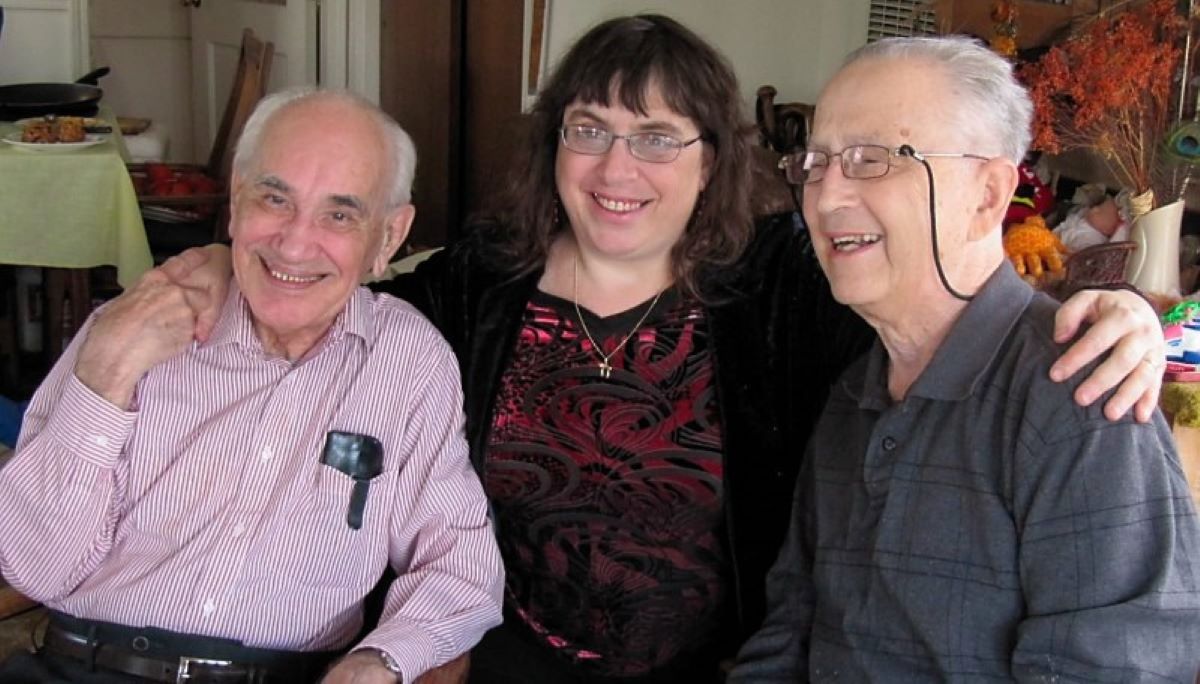Since Kansas Poet Laureate Emeritus Caryn Mirriam-Goldberg's nonfiction book, “Needle in the Bone: How a Holocaust Survivor and Polish Resistance Fighter Found Each Other and Beat the Odds,” was published in 2012, she has brought this story of the Holocaust and Polish Resistance to dozens of small towns and cities throughout Kansas.
On Sunday, Nov. 24, at 5 p.m., Mirriam-Goldberg will bring this decade-long endeavor to a close with one final presentation at the Lawrence Jewish Community Congregation (LJCC) (917 Highland Dr., Lawrence, KS 66044), her home congregation.
Mirriam-Goldberg’s talk will be followed by a reception. This event is free and open to the public although the LJCC requests advance registration on their website.
“Needle in the Bone,” an autoethnographic book blending memoir, history, oral history and more, tells a tale close to home: the twined stories of best friends Lou Frydman, a Holocaust survivor, and Jarek Piekalkiewiz, a Polish Resistance fighter. The book also includes Mirriam-Goldberg experience grappling with the weight and meaning of their stories. “Needle in the Bone” was awarded as a Kansas Notable Book.
Entitled “Holocaust Stories of Resistance and Resilience: A Presentation on Bringing the History of Holocaust to Kansas,” the talk will encompass both the stories of Frydman and Piekalkiewiz as well as what Mirriam-Goldberg discovered by going into far reaches of Kansas, sometimes as the first Jew people in the community had ever met. Mirriam-Goldberg’s experiences span the poignant, the unexpected and even the surreal at times (with more than a little humor involved) serving — as she joked about with the organization Humanities Kansas — as a “roving scholar porta-Jew.”
Through the lens of Frydman and Piekalkiewiz's stories, she was able to engage with hundreds of people interested in learning more about the Holocaust and Polish Resistance, concerned about antisemitism and other forms of othering, and inspired by what it means to survive and make a new life in a new land.
Funding for this program was provided by the Lindenbaum Fund for Holocaust Education and by the Humanities Kansas.



